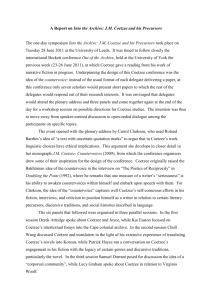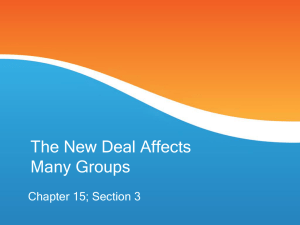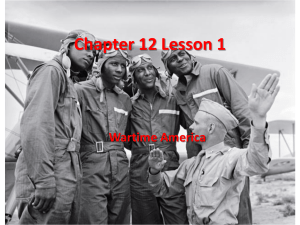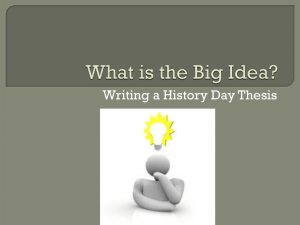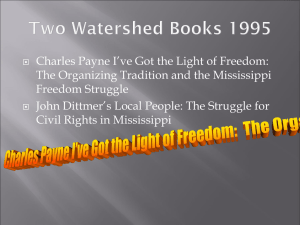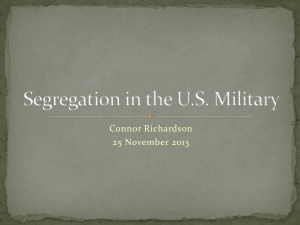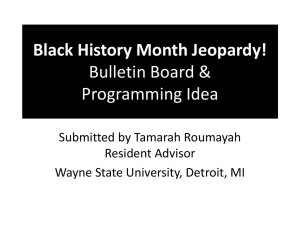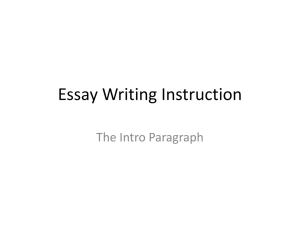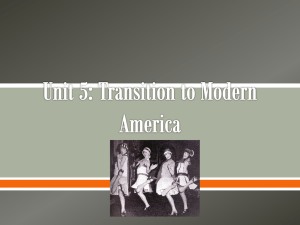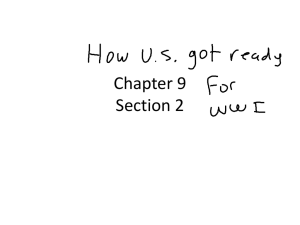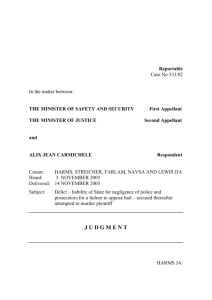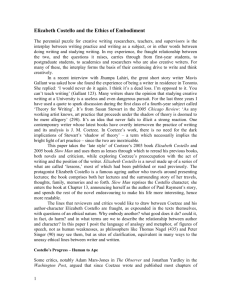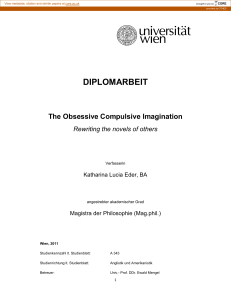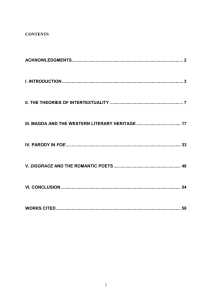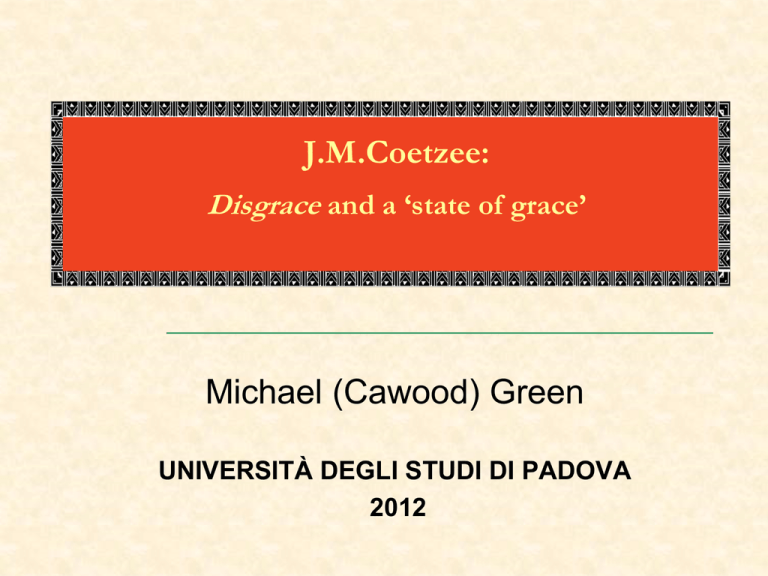
J.M.Coetzee:
Disgrace and a ‘state of grace’
Michael (Cawood) Green
UNIVERSITÀ DEGLI STUDI DI PADOVA
2012
‘With the best will in the world it is impossible to detect in the fiction
of black South Africans any significant and complex talent which
responds with both the vigour of the imagination and sufficient
technical resources to the problems posed by conditions in South
Africa…. If black South African writers have read modern works
of literature…, they seem to be totally unaware of its most
compelling innovations…. What we get most frequently … is the
journalistic fact parading outrageously as imaginative literature.’
Lewis Nkosi, ‘Fiction by Black South Africans’, 1966.
JM Coetzee:
‘…does homage to Western experimentalism not involve a
rather simple-minded view of an absolute “technique” which,
as in the myth of our science, can only progress, never
regress…?
‘…are we not entitled to ask … whether there might not be a
whole spectrum of valid literatures open to Africa, and to
suggest that the writer should not, so to speak, choose his
tradition at random, but rather choose it with some sense of
the social implications of his choice?’
‘Alex La Guma and the Responsibilities of the South
African Writer’, 1971.
Trope governing the reception of apartheid-period black South
African writing: that its predominant method is that of
documenting the atrocities of colonialism and apartheid through
the realist mode.
Deprivation and isolation of black South African writers, influence
of popular fiction , the impact of a vigorous period of local
journalism in the 1950s - Es’kia Mphahlele: ‘extracts
experience from raw life and does little to impose an aesthetic on
the material’
Brutality of apartheid, suppression, militancy of opposition:
practically a mandatory mode for progressive writing.
Realist ideal: capturing the human subject as embedded in a full
political, social, and economic context
Emerged in relation to the rise of nineteenth-century industrial
capitalism - lent itself to a number of ideological programmes:
Georg Lukács/socialist realist novel ; British liberal literary
tradition.
Adopted/adapted to South African context: moral authority of
realism as the primary mode of bearing witness to the truth of
South Africa in the late 1970s and 1980s
Mothobi Mutloatse: ‘We need a writing that records exactly the
situation we live in, and any writing which ignores the urgency
of political events will be irrelevant’ (1981).
Congress of South African Writers, cultural desks of the African
National Congress, United Democratic Front, Congress of South
African Trade Unions: ‘rhetoric of urgency’ (Louise Bethlehem,
Skin Tight)
Nadine Gordimer: opposition to the ‘hyper-introspective’
experimental text as a suitable mode for engaging with the
heightened political context of South Africa – Coetzee (see ‘The
Idea of Gardening’)
‘Coetzee’s language can say next to nothing, and certainly nothing
reliable, about experiences outside the modality of its own racialhistorical dialectic’ (Michael Vaughan, ‘Literature and Politics’)
Coetzee and the critics who espouse his work ‘confirm the
suspicions of many black writers that literary pursuit in white
South Africa has rather more to do with the gratifications of
libidinal language than the fulfillments of fighting political
injustice’ (Michael Chapman, ‘The Writing of Politics’)
Coetzee’s experimentalism - denied any ‘progressive’ merit:
‘epitomizes the dehistoricizing, desocializing tendency of
colonialist fiction’ in a postcolonial context (JanMohamed, ‘The
Economy of Manichean Allegory’)
Coetzee’s novels demonstrate precisely how ‘literary
postmodernism in a postcolonial context as South Africa…is a
moral dead end’ (Paul Rich, ‘Apartheid and the Decline of the
Civilization Idea’
Coetzee’s work: different kind of responsibility and engagement,
predicated on interrogating just such discursive horizons in the
South African critical and creative landscape.
First full-length study of Coetzee’s work: Teresa Dovey, The Novels
of J. M. Coetzee: Lacanian Allegories (1988)
Argued that the novels were a form of ‘criticism-as-fiction, or
fiction-as-criticism’ which pre-empted naive readings on
essentially referential terms.
David Attwell: cut through the ‘considerably oversimplified
polarization’ between the claims of political resistance and
poststructuralist sophistication. Read the novels as ‘a form of
situational metafiction’ which takes into account both ‘reflexivity
and historicity’. J.M. Coetzee: South Africa and the Politics of
Writing (1993)
South African literary reception: tendency to essentialise form in
relation to social historical circumstance.
Chapman, Southern African Literatures, 1996: only a writer like ‘the
“unschooled” Matshoba’ ‘can quite unselfconsciously be less than
an artist with his testimony claiming authenticity as the
representation of his life condition’. White novelists - privileges
of ‘race, education, income, and reputation’ - feel ‘the need to be
enormously self-conscious about the truth of their fiction’.
Lewis Nkosi, 1998: ‘In South Africa there exists an unhealed . . .
split between black and white writing, between on the one side an
urgent need to document and bear witness and on the other side
the capacity to go on furlough, to loiter, and to experiment’.
‘Black writing is indeed replete with instances of aesthetic selfconsciousness, not excluding the very kinds of experimentalism
that we associate with modernism’. Attwell, Rewriting Modernity:
Studies in Black South African Literary History, 2006
Zakes Mda, Njabulo Ndebele, Mongane Serote (?) Esk’ia
Mphahlele, etc
Drum? – modern/tradition – but not modernism
Plaatje? – Mhudi: extend ‘experimental line’
Social history/‘representational literalism’
But flagrantly hybrid: romance, epic, historical novel, ‘indigenous’
oral modes, folk-tale, proverbs, praise poems and prophecy
Robert Pippin: modernism - ‘dawning sense of a failure in the social
promise of modernisation’
Mhudi: Ambivalent about modernisation/colonising technology;
appropriation of ‘History’ and ‘national time’
BUT
Simon During, `Postmodernism or Post-Colonialism Today,’ 1990
`post-colonialism is the need, in nations or groups which have been
victims of imperialism, to achieve an identity uncontaminated by
universalist or Eurocentric concepts and images'
Effect: `new post-colonial nationalisms' appear as the `strongest
enemies of postmodernity’; reveal the complicity of
postmodernity with the neo-imperialism that effects its influence.
Fraught reception of Coetzee?
Disgrace (1999)
Booker Prize, Nobel Prize in Literature (international)
Criticism within SA: Anti-apartheid voice seemingly condemning the
‘new’ South Africa. Racist? ‘Dispossessed, middle-aged white
man railing against a culture that had no place for him’
(Washington Post)
Novel impedes nation-building?
Hinders reconciliation and regeneration?
Misleading about steps towards reconciliation?
David Lurie: free indirect discourse – focaliser: ‘Coetzee’?
Biographical similarities/ ‘autobiographies’
Cape Town literature professor:
‘For a man of his age, 52, divorced, he has, to his mind, solved the
problem of sex rather well.’ – Soraya
‘’Not rape, not quite that, but undesired nevertheless, undesired to
the core.’– Melanie
‘Satire’:
university – Classics, Modern Languages - Communications
‘comedy of the new South Africa’
sexual harassment enquiry/TRC – legal full disclosure/moral
remorse, repentance, ask forgiveness (see ‘Confession and Double
Thoughts’)
‘disgrace’
Lucy – Easter Cape (border) – refuge
‘no longer a child playing at farming but a solid countrywoman, a
boervrou.’
Lurie gradually resigns himself to the presence of the black business
partner, Petrus, his daughter’s homosexuality and rural lifestyle,
and his loss of employment and prestige – ‘disgrace’
Attack -much darker:
‘A risk to own anything: a car, a pair of shoes, a packet of cigarettes. Not enough to go
around, not enough cars, shoes, cigarettes. Too many people, too few things. What
there is must go into circulation, so that everyone can have a chance to be happy for a
day. That is the theory; hold to the theory and to the comforts of theory. Not human
evil, just a vast circulatory system, to whose workings pity and terror are irrelevant.
That is how one must see life in this country: in its schematic aspect. Otherwise one
could go mad. Cars, shoes; women too. There must be some niche in the system for
women and what happens to them’ (98)
‘It happens every day, every hour, every minute. He tells himself,
in every quarter of the country. Count yourself lucky to have
escaped with your life....’ (98)
‘It is a new world they live in, he and Lucy and Petrus. Petrus
knows it, and he knows it, and Petrus knows he knows it’ (117)
‘I am sunk into a state of disgrace... I do not murmur against it.
On the contrary, I am living it out from day to day, trying to
accept disgrace as my state of being.’
(172)
Derek Attridge, J.M. Coetzee and the Ethics of Reading, 2005
‘postmodern’ paradigm - neither reactionary aestheticism or radical
Innovation; reinvest the discursive strategies of modernism with an
ethical dimension particularly appropriate to the postcolonial
context.
Self-reflexiveness of modernist writing -‘a new apprehension of the
claims of otherness, of that which cannot be expressed in the
discourse available’
Coetzee’s self-reflective, allusive, metafictional strategies ‘engage
with – to stage, confront, apprehend, explore – otherness’.
Coetzee’s novels produce a ‘continued, strenuous enterprise in
acknowledging alterity’
‘Lucy’s secret; his disgrace’ (109)
Constant: wasn't in the room with Lucy when the rape took place.
‘…he can, if he concentrates, if he loses himself, be there, be the
men, inhabit them, fill them with the ghost of himself. The
question is, does he have it in him to be the woman?’
‘…as far as I am concerned, what happened to me is a purely
private matter. In another time, in another place it might be held to
be a public matter. But in this place, at this time, it is not. It is my
business, mine alone.’
'This place being what?'
'This place being South Africa.‘
(112)
‘How humiliating,’ he says finally. ‘Such high hopes, and to end like
this.’
‘Yes, I agree, it is humiliating. But perhaps that is a good point to
start from again. Perhaps that is what I must learn to accept. To
start at ground level. With nothing. Not with nothing but. With
nothing. No cards, no weapons, no property, no rights, no
dignity.’
‘Like a dog.’
‘Yes, like a dog.’
(205)
Cited in an ANC submission to the Human Rights Commission on
Racism in the Media as an example of racist depictions of
democratic South Africa as a place where black people are out to
humiliate white people.
The Life and Times of Michael K?
And if the old man climbed out of the cart and stretched himself (things were gathering
pace now) and looked at where the pump had been that the soldiers had blown up so that
nothing should be left standing, and complained, saying `What are we going to do about
water?', he, Michael K, would produce a teaspoon from his pocket, a teaspoon and a
long roll of string. He would clear the rubble from the mouth of the shaft, he would
bend the handle of the teaspoon in a loop and tie the string to it, he would lower it down
the shaft deep into the earth, and when he brought it up there would be water in the bowl
of the spoon; and in that way, he would say, one can live. (250)
‘A good person. Not not a bad resolution to make, in dark times’
(216)
‘ “Will you come in and have some tea?”
She makes the offer as if he were a visitor. Good. Visitorship,
visitation: a new footing, a new start.’ (218)
End of film: but
Age of Iron? Elizabeth Curren – ‘a good person’ in times when ‘to be
a good person is not enough’.
Film - Landscape:
“We needed to establish how magnificent the South African landscape is and
the relationship of both black and white to the land,” Mr. Jacobs said. “It was
very important to give the audience some reason for comprehending why Lucy
would want to stay.” Mr. Coetzee’s only public statement about the film praises
its success at “integrating the story into the grand landscape of South Africa.”
‘Tough Terrain to Document: South Africa’, New York Times, 2009
Far too literal:
Leaves out two vital strands:
‘Byron in Italy: a meditation on love between the sexes in the form
of a chamber opera’ (4)
Byron in his final years, living in Ravenna with his mistress Teresa
Guiccioli and her husband
After attack: ‘dumpy little widow’ calling sadly to dead lover (181-3)
Township banjo: ‘plink plunk’ ... ‘long, halting cantilena hurled into
empty air’ (214)
[‘origins of speech lie in song... origins of song ... need to fill out
with sound the overlarge and rather empty human soul’ (3-4)]
‘a single authentic note of immortal longing’
‘He knows too much about art and the ways of art to expect that’
(214)
‘Would he dare do that: bring a dog into the piece...’ (215)
Animals: not sentimental – ‘animal-welfare people’ (73) Bev.
Lucy: ‘On the list of the nation’s priorities, animals come nowhere’
Central: long passage 142-146:
‘he gives off the wrong smell, the smell of shame’ (142)
‘they flatten their ears, they droop their tails, as if they too feel the
disgrace of dying’ (143)
‘he is not prepared to inflict such dishonour upon them’ (144)
‘.... It was then that he intervened and took over the job himself’
(145)
‘what do dogs know of honour and dishonour anyway?’ (146)
‘For himself the. For his idea of the world...’ (146)
‘He saves the honour of corpses because there is no one else stupid
enough to do it’ (146)
Not a practical commitment to improving the world: profound need
to preserve the ethical integrity of the self. Disgrace/honour –
service to other – absolute other: ‘It will be little enough, less than
little: nothing’ (220)
NOT film: ‘stoic attachment to the tract she owns and shares with a black
farmer, Petrus’; ‘the film, with its majestic images of the rugged citrus-growing
backcountry northeast of Cape Town, underscores the pull of the land in a way
not possible in the book.’ (‘Tough Terrain to Document’)
‘Yes, I am giving him up’ – true end.

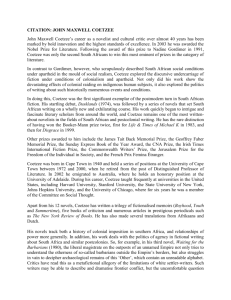
![Special Author: J M Coezee [DOCX 16.46KB]](http://s3.studylib.net/store/data/006725603_1-a90a37b51f13fcb8d2c12633d4a21525-300x300.png)
